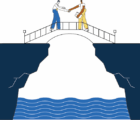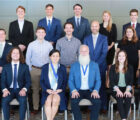CAS Board Proposes Constitution and Bylaws Amendments to Streamline Governance
The CAS Board of Directors is proposing changes to the CAS Constitution and Bylaws to streamline the governance of the Society. Fellows will be asked to vote on the changes in conjunction with the 2021 CAS elections in August. In putting the proposals on the ballot, the board is recommending that the Fellows vote in favor of the amendments.
The recommended changes were originally initiated by the board’s adoption of an evolving volunteer-staff model, which includes retiring the Executive Council layer of governance and its role in CAS operations. The impetus for the board’s decision stemmed from the Future of Volunteerism Task Force, which concluded that the CAS volunteer staffing model does not fully and efficiently support the Society’s current and long-term initiatives and recommended that the CAS would benefit from a reorganization of the existing committee structure. The thrust of the evolving model puts a focus on the contribution of subject matter expertise and thought leadership by volunteers and a professional staff, led by the CEO, that executes strategy and has accountability for CAS operations.
With accountability for CAS operations assigned to the CEO, the Executive Council governance layer is no longer required by the board. Oversight of committee operations will be the responsibility of senior staff executives, including the chief financial officer, chief learning officer, chief communications officer, and chief growth officer, all reporting to the CEO. Senior CAS volunteer leaders will continue to serve as advisors to staff, and the board-level Operational Oversight Committee will monitor CAS operations. For more details and background on the evolving Volunteer-Staff Framework, see the recently posted announcement.
With plans to revise the CAS Constitution and Bylaws to remove reference to vice presidents and the executive council, the board took the opportunity to revisit the governing documents in totality. The board sought the advice of legal counsel, which recommended that the CAS governance documents be updated to reflect current best practices, including condensing the two documents into one set of Bylaws.
To oversee this work, the board established a working group of CAS Board/Executive Council members and staff, which included Mary Frances Miller, Mary Hosford and Erika Schurr, working with the CAS Staff, CEO and general counsel. The group developed a final proposed set of new CAS Bylaws, which were accepted by the board during its June 25, 2021, meeting.
In addition to removing references to vice presidents and the CAS Executive Council and delegating authority for day-to-day operations to the CEO, the new Bylaws replace lengthy descriptions of specific procedures with more general language, stating that these procedures are “specified by the Board.” The procedures extracted from the Constitution and Bylaws relate to discipline of members and public expression of professional opinion. Detailed procedures for discipline were previously approved by the board and have been in place for many years. Procedures for public expression of professional opinion were separately adopted by the board during its June 25, 2021, meeting, with very minor changes from what had been included in the CAS Constitution.
The board noted that this approach has already been in place for the CAS election procedures, as the current Bylaws state: “Procedures for nominations and elections shall be established by a majority vote of the Directors present and voting at a meeting of the Board of Directors.” Adopting this approach for other procedures in the new proposed Bylaws will allow greater efficiency and flexibility in making future changes to administrative processes, while also aligning the documents with current association best practices.
The proposed Bylaws are available for review, along with separate procedures that were extracted from the Constitution and Bylaws and/or approved by the Board. The current Constitution and Bylaws are also available (see box, next page). An FAQ has also been developed, with additional details on the proposed changes at casact.org/sites/default/files/2021-07/CAS_Bylaws_Proposal_FAQ.pdf.
Balloting on the proposed changes will open on August 2, with ballots due by August 31. Constitution and Bylaws changes require an affirmative vote from 10% of the Fellows or two-thirds of the Fellows voting, whichever is greater. Note: CAS Associates possessing the designation for five or more years can vote in CAS Board elections, however, Bylaws amendment voting is reserved for CAS Fellows.
Helpful Links
- Proposed CAS Bylaws (clean) — casact.org/sites/default/files/2021-07/CAS_Bylaws_Proposal.pdf
- Proposed CAS Bylaws (annotated) — casact.org/sites/default/files/2021-07/CAS_Bylaws_Proposal_annotated.pdf
- CAS Rules of Procedure for Disciplinary Actions — casact.org/sites/default/files/2021-07/CAS_Rules_of_Procedure%20_for_Disciplinary_Actions.pdf
- CAS Rules of Procedure for Public Expression of Professional Opinion —casact.org/sites/default/files/2021-07/Public_Expression_of_Professional%20_Opinion.pdf
- CAS Rules of Procedure for Elections (2021) — casact.org/sites/default/files/2021-07/2021_CAS_Election_Procedures.pdf
- Current CAS Constitution — casact.org/sites/default/files/2021-02/cas_constitution.pdf
- Current CAS Bylaws — casact.org/sites/default/files/2021-03/CAS_Bylaws.pdf
Casualty Actuarial Society Bylaws
(Draft as of May 19, 2021)
ARTICLE I. – Name
The name of this organization is the “Casualty Actuarial Society” (“CAS” or “Society”), a nonprofit and nonstock corporation incorporated under the laws of the State of Illinois.
ARTICLE II. – Statement of Purpose
The purposes of the Society are to advance the body of knowledge of actuarial science applied to property, casualty, and similar risk exposures, to establish and maintain standards of qualification for membership, to promote and maintain high standards of conduct and competence for the members, and to increase the awareness of actuarial science.
ARTICLE III. – Membership
Section 1.—Classes Of Members
The membership of the Society shall be composed of three classes:
a) Fellows
The Fellows of the Society shall be those who are duly admitted to Fellowship as hereinafter provided. Fellows shall be Voting Members of the Society and shall also be eligible to hold office, make nominations, and generally exercise the rights of full membership. Fellows are authorized to append to their names the initials F.C.A.S.
b) Associates
The Associates shall be those who are duly admitted to Associateship as hereinafter provided. Associates shall be entitled to attend meetings of the Society and to participate at Society functions. Five years after becoming an Associate (or upon becoming a Fellow, whichever occurs first), an Associate shall become a Voting Member of the Society. Associates are authorized to append to their names the initials A.C.A.S.
c) Affiliates
The Affiliates shall be those who are duly admitted as Affiliates as hereinafter provided. Affiliates are encouraged to refer to themselves as such but are not authorized to append CAS initials to their name. In referring to themselves Affiliates may refer to themselves as “Affiliate of the Casualty Actuarial Society” or “Affiliate Member of the Casualty Actuarial Society.” They may not refer to themselves as “Member of the Casualty Actuarial Society.”
Section 2.—Requirements For Admission To Membership
a) Associates
Any applicant shall be enrolled as an Associate upon notification by the Society provided that the applicant successfully completes the admission requirements prescribed by the Board of Directors for Associateship
b) Fellows
An Associate shall be enrolled as a Fellow of the Society following notification of successful completion of the admission requirements prescribed by the Board of Directors for Fellowship
c) Affiliates
An actuary who is not otherwise a member shall be enrolled as an Affiliate, subject to such requirements as the Board may prescribe.
d) Mutual Recognition
The Board of Directors may negotiate and implement Mutual Recognition Agreements with other actuarial organizations that qualify actuaries through a process that includes rigorous testing of a comprehensive property and casualty specialization. Such Mutual Recognition Agreements will include requirements that applicants complete the property and casualty specialization requirements and all other requirements for full membership in their home organization, and complete any additional requirements specified by the Board.
Any applicant who meets the Mutual Recognition requirements so agreed shall be enrolled as a Fellow.
ARTICLE IV. – Meetings of the Members
The President shall preside at meetings of the members of the Society. There shall be an annual meeting of the Society on such date as determined by the Board of Directors. Other Society meetings may be called by the Board from time to time and shall be called by the President at any time upon the written request of 5% of the Voting Members. At least two weeks’ notice of all Society meetings shall be given to the members. Five percent of the Voting Members of the Society shall constitute a quorum at meetings of members of the Society and the affirmative vote of a majority of Voting Members voting shall be required for action unless otherwise required by law or these Bylaws.
ARTICLE V. – Dues
Section 1.—Amount
The Board of Directors shall fix the annual dues for members.
Section 2.—Failure To Pay
The Society shall be responsible for notifying any member whose dues are six months in arrears. If a member shall fail to make payment within three months from the date of such notice, the member shall cease to be a member, except at the discretion of the Board of Directors this provision may be waived.
Section 3.—Exemption, Deferral Or Waiver
The Board of Directors may, at its discretion and in accordance with established policy, exempt, defer or waive, partially or fully, the dues of any member who submits a written request to the Board of Directors before dues have become six months in arrears, citing the reason for the request.
Section 4.—Reinstatement
A member who has ceased to be a member because of failure to pay dues, or by voluntary resignation, may be reinstated in accordance with procedures to be set by the Board of Directors.
ARTICLE VI. – Resignation and Discipline of Members
Any member who is not in default in payment of dues, and against whom no complaints are pending, may resign at any time by filing a resignation request in writing with the Society Office. Notwithstanding the foregoing, the Board of Directors may, in its discretion, approve the resignation of a member in default of payment of dues or against whom a complaint or charge is pending before the Actuarial Board for Counseling and Discipline, the Canadian Institute of Actuaries, or other appropriate investigatory body, or against whom a recommendation for public disciplinary action has been made to the Society by the Actuarial Board for Counseling and Discipline, the Canadian Institute of Actuaries, or other appropriate investigatory body. The Board, on written application of any member who has resigned, may reinstate such member subject to such conditions as it may prescribe.
Members of the Society and candidates for membership shall be subject to disciplinary action in accordance with the Bylaws of the Society and rules of procedures of disciplinary actions as adopted by the Board of Directors.
Section 1.—Complaints And Questions
a) Complaints concerning alleged violations of the Code of Professional Conduct, and all questions which may arise as to the conduct of a member of the Society, in the member’s relationship to the Society or its members, or in the member’s professional practice, or questions affecting the interests of the actuarial profession, constitute matters for serious consideration.
b) Such complaints, questions, or requests for advice shall be referred to the national organizations responsible for profession-wide investigation, counseling and/or discipline, e.g., the Actuarial Board for Counseling and Discipline (ABCD) and the Canadian Institute of Actuaries (CIA).
Section 2.—Referral And Consideration Of Public Disciplinary Action
Acting pursuant to Section 1, and if circumstances warrant, the appropriate investigatory body shall present a recommendation for disciplinary action to the Society. The member whose activities are the subject of the disciplinary recommendation is referred to here as the subject actuary.
Disciplinary action includes a public or private reprimand by, or suspension or expulsion from, the Society.
If an appropriate investigatory body recommends disciplinary action to the Society, the matter shall be referred to the CAS Discipline Committee. Rules of procedure for the CAS Discipline Committee will be as approved by the Board of Directors.
Section 3.—Appeals
The subject actuary shall be entitled to appeal the decision of the Discipline Committee by submitting a written request for an appeal to the CAS President within 45 days from receipt of the Discipline Committee decision. Rules of procedure for appeals will be as approved by the Board of Directors.
Section 4.—Reinstatement
An individual who has been expelled may be reinstated only upon request to and approval of the Board of Directors.
Section 5.—Confidentiality And Notification
All proceedings under this Article shall be confidential in accordance with the Rules of Procedure.
Section 6.—Case Reviews
The Board of Directors retains the right to review a decision by a national organization responsible for profession-wide counseling and discipline which does not result in a recommendation for disciplinary action with respect to a Society member.
ARTICLE VII. – Board of Directors and Officers of the Society
Section 1.—Composition Of The Board
The Board of Directors shall consist of the President, the President-Elect, the immediate past President, 12 other elected Fellows and up to three additional appointed members.
Section 2.—Authority
The Board of Directors supervises, directs, and controls the policies and programs of the Society. The Board of Directors shall set criteria for membership and promulgation of statements of principles. The Board of Directors delegates to the Chief Executive Officer responsibility for operational management of the Society when the Board is not in session, consistent with any policies established by the Board.
Section 3.—President And President-Elect
The President and President-Elect, both of whom shall be Fellows, shall be Officers of the Society.
Section 4.—Election And Term Of Office For President And President-Elect
At the close of the annual meeting, the President-Elect shall assume the office of President for a term of one year. Annually, a new President-Elect shall be elected by the Voting Members in a secret ballot for a term of one year.
The term of all Officers shall begin at the close of the annual meeting in the calendar year of their election and continue until their successors take office.
Section 5.—Election And Term Of Office For Board Of Directors
Annually, in a secret ballot of the Voting Members, four Fellows shall be elected to the Board of Directors for a term of three years. A retiring elected Director shall not be eligible for reelection for at least one year after the expiration of the term for which the Director was elected. Appointed Directors will be elected by the Board of Directors and will serve a term of one year, renewable for up to three years.
Section 6.—Succession
- a) In case of death of the President, or of a prolonged period of incapacity, or removal, the position of the President will be assumed by the President-Elect or, if the President-Elect is unable to assume these duties, by the Immediate Past President. The Board will decide by majority vote of those voting whether to proceed to a special election of the membership for a new President-Elect to serve in the subsequent Presidential term, or whether the new President will serve the unexpired term of the past President and the full term that follows.
- b) In case of death of the President-Elect, or of a prolonged period of incapacity, or removal, a special election of the membership will be held to fill the position of President-Elect. If at the time of the annual meeting the election has not concluded, the term of the incumbent President will be extended until such time as the election is concluded.
Section 7.—Removal From Office
The process for the removal of any member from the Board of Directors can be initiated by either a petition of 5% of the Voting Members, or a majority vote of the Board of Directors (with the person proposed to be removed not voting). Reasons for the removal include violation of the code of conduct; abuse of power; behavior materially incompatible with the proper function and purpose of the office.
Procedures relating to the removal process shall be adopted by the Board. Once the removal process has been initiated, a hearing and vote of the Board will be held within 45 days. A vote to recommend removal requires a two-thirds majority of the Board members voting (with the person proposed to be removed not voting). A Board recommendation for removal shall be subject to approval by a vote of the Voting Members, to be held within 45 days of the Board vote. A two-thirds majority of the Voting Members voting is required for removal.
ARTICLE VIII. – Meetings of the Board of Directors
Meetings of the Board of Directors shall be chaired by the immediate past President and shall be called whenever the immediate past President or three members of the Board so request. Notice shall be sent to each member of the Board no less than seven days before the time appointed. An emergency Board meeting may be called by the immediate past President or by three members of the Board, if there are circumstances that could not have been reasonably foreseen which require immediate attention and possible action by the Board, and which of necessity make it impracticable to provide seven days’ notice. Such notice shall state the agenda for the meeting. A majority of the members of the Board of Directors shall constitute a quorum and the affirmative vote of a majority of members of the Board voting shall be required for action unless otherwise required by law or these Bylaws. A two-thirds vote of the Board members voting is required for approval or promulgation of statements of principles.
ARTICLE IX. – Elections and Filling of Vacancies
Procedures for nominations and elections shall be established by a majority vote of the Directors present and voting at a meeting of the Board of Directors. These procedures shall be provided to the membership annually at the beginning of the election process.
The Board of Directors may fill vacancies in the term of any Board member. Any member of the Board so appointed shall serve, until the expiration of the term of office of the Board member being replaced.
ARTICLE X. – Chief Executive Officer
The Chief Executive Officer is an Officer of the Society and serves as Secretary of the Society. The Chief Executive Officer is charged with overseeing operations of the Society. The Chief Executive Officer shall have such other duties as may be assigned by the President or the Board of Directors.
ARTICLE XI. – Public Expression of Professional Opinion
No opinion with respect to questions of public interest shall be publicly expressed by, or on behalf of, the Society, except on matters within the special professional competence of actuaries and then only in accordance with procedures determined by the Board of Directors.
ARTICLE XII. – Indemnification
Directors, officers, volunteers, and other authorized employees or agents of the Society shall be indemnified against claims for liability arising in connection with their positions or activities on behalf of the Society to the full extent permitted by law.
ARTICLE XIII. – Amendments
These Bylaws may be amended by an affirmative vote of 10% of the Fellows or two-thirds of the Fellows voting, whichever is greater. Notice of such proposed amendment shall be sent to each Fellow at least one month before the vote is taken.
An amendment to the Bylaws can be proposed by a two-thirds majority vote of the Board members voting. Alternatively, an amendment can be proposed by a petition of 5% of the Fellows, unless such petition is vetoed by a two-thirds majority vote of the Board members voting.
ARTICLE XIV. – Arbitration
Any dispute or controversy arising under or in connection with the above or any controversy or claim that is in any way connected to or associated with the Society shall be settled exclusively by arbitration to be held in the Commonwealth of Virginia in accordance with the rules of the American Arbitration Association then in effect. Judgment may be entered on the arbitrator’s award in any court having jurisdiction.
ARTICLE XV. – Use of Financial Resources: Dissolution
The funds of the Society shall be devoted exclusively to the purposes stated in Article II hereof. No part of the net earnings of the Society shall inure to the benefit of, or be distributable to, its members, Directors, Officers, or other private persons, except that the Society shall be authorized and empowered to pay reasonable compensation for services rendered and to make payments and distributions in furtherance of the purposes set forth in Article II hereof. If the Society is dissolved, all of its remaining assets shall be transferred to one or more organizations organized and operating exclusively for purposes similar to those of the Society and which qualifies as an exempt organization under section 501(c)(3) or section 501(c)(6) of the Internal Revenue Code of 1954 (or the corresponding provision of any future Internal Revenue Law).











